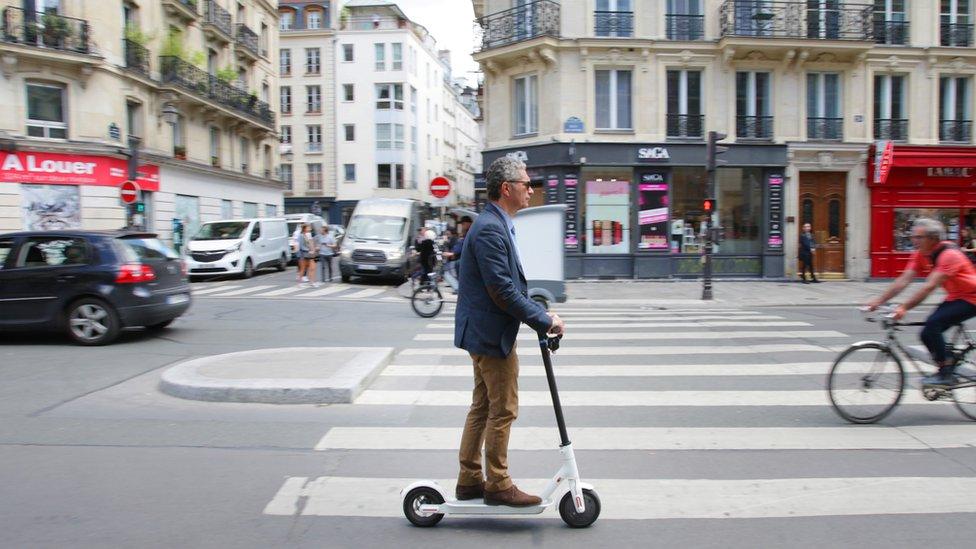Paris police search for two e-scooter riders after pedestrian killed
- Published

The fatal incident has renewed the debate over e-scooters in Paris (file photo)
French police are searching for two women after the death of a pedestrian who was hit by an electric scooter in Paris, officials say.
The 31-year-old victim, an Italian citizen named only as Miriam, was walking along the Seine early on Monday when she was hit by the e-scooter.
The pair were reportedly travelling at high speed, and did not stop.
The public prosecutor's office has opened an investigation into homicide aggravated by failure to provide help.
The victim, who was reportedly walking with a friend, hit her head on the pavement and suffered cardiac arrest. Divers from the river police patrolling the Seine gave her emergency medical treatment, and managed to restart her heart after 30 minutes.
She was taken unconscious to hospital, where she remained in a coma until her death on Wednesday. Originally from the region of Capalbio, in Tuscany, she worked as a waitress in a small Italian restaurant.
The incident happened at 01:00 local time on the Voie Georges-Pompidou on the right bank, near the Pont au Change bridge. Police have appealed for witnesses and are examining CCTV footage from the area.
The case has renewed the debate over e-scooters in Paris, where there have been concerns for the safety of pedestrians.
They can travel at more than 50km/h (30mph), and are growing in popularity, in part because of their low environmental impact.
In 2019, the French government introduced rules after hundreds of incidents, including several deaths. Riders are required to be at least 12 and cannot ride their scooter on the pavement.
In the UK, London has become the latest city to trial e-scooters. More than 30 areas - including Newcastle, Bristol and Bournemouth - are already operating rental schemes.
E-scooters have been introduced to six London boroughs after trials in 30 towns and cities across the UK
Related topics
- Published7 June 2021